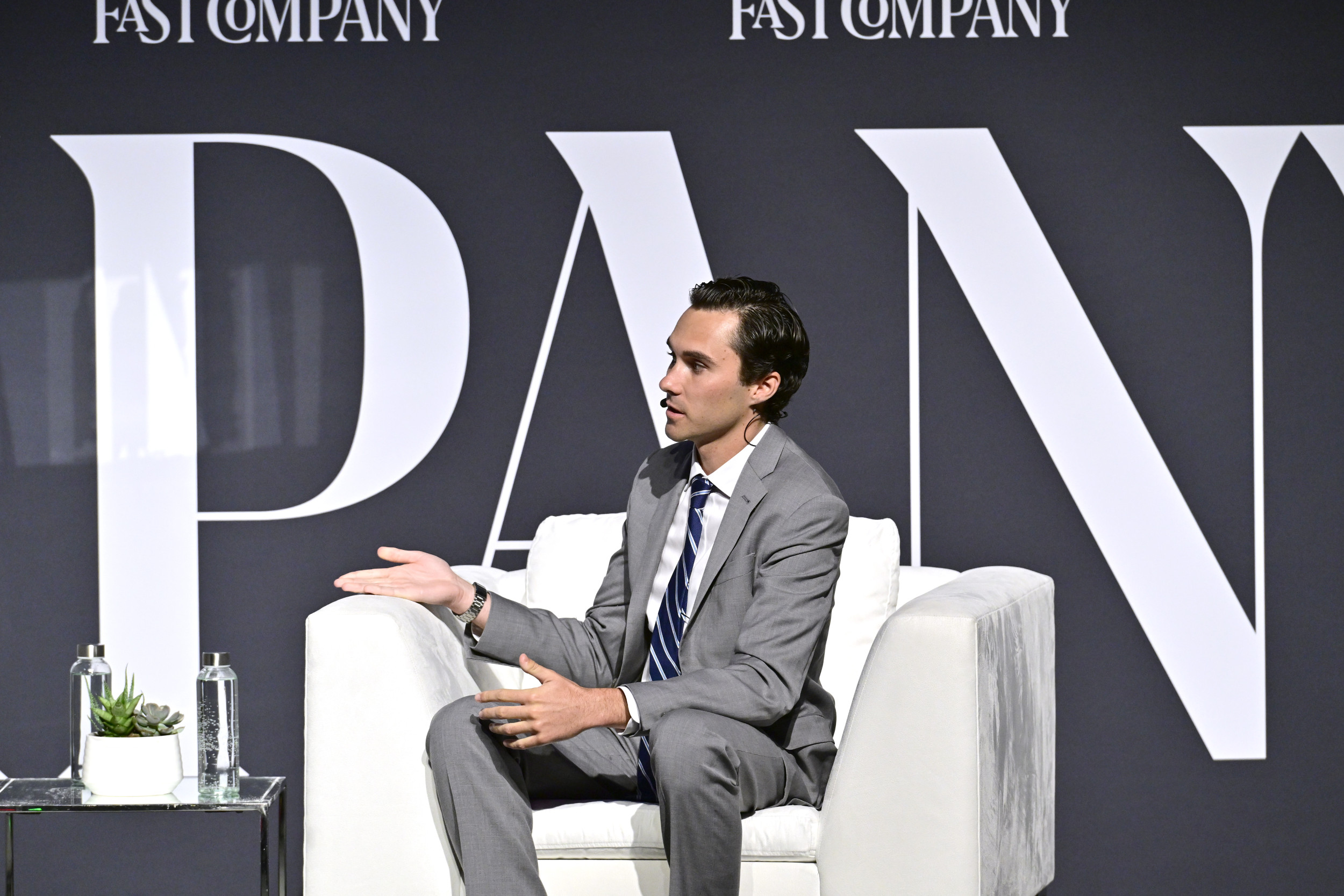🎙️ Voice is AI-generated. Inconsistencies may occur.
President Donald Trump's tariffs could make online shopping from retailers like Shein and Temu more expensive.
Newsweek reached out to Shein and Temu for comment.
Why It Matters
China, the home to popular online retailers like Shein and Temu, is facing steep 145 percent tariffs from the United States amid an ongoing trade war.
Trump says the tariffs are necessary to close what he views as unfair trade deficits with other countries, as well as restore U.S. manufacturing. Economists, however, say tariffs will lead to higher prices for American consumers, who already dealt with high levels of inflation in the years after the COVID-19 pandemic.
These tariffs will have major implications for Shein and Temu, two of the fast-fashion companies that have exploded in popularity over the past few years

What To Know
China Tariffs: The Latest
Trump has upped tariffs on Chinese imports to 145 percent, making it significantly more expensive for these items to be brought into the U.S. He upped the tariffs to 125 percent on Wednesday after China retaliated against his earlier tariffs.
On Thursday, the White House clarified that the 125 percent tariff would be on top of a 20 percent tariff China is already facing, bringing the total to 145 percent
Although tariffs on China have increased, tariffs on dozens of other countries across the globe have been put on a 90-day pause, giving the markets a bit of a respite despite the new tariffs on China.
How Will Tariffs Change Fast Fashion?
Sheng Lu, professor and graduate director of fashion and apparel studies at the University of Delaware, told Newsweek that these companies will have new complications because of the new tariffs. Unlike some fast-fashion companies, they haven't quite diversified their sourcing to countries like Bangladesh or Vietnam, which were hit with lower tariffs.
Shein has a unique vertical integration that allows its factories to control all aspects of manufacturing. That allows them to produce products in smaller batches than other retailers, but other countries may not have the same capacity for that manufacturing system.
"Definitely, companies like Shein and Temu will be directly and significantly affected by the tariff increase," Lu said.
Companies may be able to absorb some of the new costs, but some of the steep 104 percent tariffs will be passed on to consumers, which may cause some fast-fashion customers to turn away from these stores. This also means there may be fewer products for consumers to choose from, as well as less competition in the discount market, Lu said.
Companies like Shein and Temu have not addressed tariffs or said how much their prices will rise as a result of the new trade policy.
"There's no way either for retailers or for their suppliers to absorb the additional cost," Lu said.
What is the De Minimis Exception?
The 145 percent tariffs aren't the only change the companies are facing under the Trump administration's new trade policies. The White House also ended the "de minimis exception," which allows companies to avert paying duties on imports worth $800 or less when shipping packages to customers in the U.S.
Not only did Trump eliminate the loophole, but on Tuesday he ordered a 90 percent duty on those imports.
A Congressional Research Service report released earlier this year found these low-value packages totaled $66 billion in 2023, up from $5.3 billion just five years earlier.
About 67 percent of imports using the loophole came from China between 2018 and 2021, according to the report. Shein and Temu account for 17 percent of the U.S. discount market, and many economists point to the loophole as a reason for their explosive growth in the U.S.
Lu said the loophole isn't just about prices for companies like Shein. He said they will now have to prepare documents for customs, and it's not clear they have the administrative manpower to do so. That may also affect their quick shipping time, which is attractive to its customer base.
Where do Shein Products Come From?
Shein products are mostly shipped from China to U.S. warehouses.
Why is Stuff From Shein and Temu So Cheap?
Products from these companies are able to be cheaper because of low manufacturing costs in countries like China. This includes lower pay for workers, which has been a key point of criticism toward the companies.
What People Are Saying
Sheng Lu, an assistant professor of fashion and apparel studies at the University of Delaware, told Newsweek: "High tariffs combined with the loss of de minimis benefits could limit Shein's product offerings in the U.S. market. As a result, other fashion companies currently competing with Shein may feel more confident in raising their prices, given the reduced supply in the market."
The White House, in an April 2 fact sheet: "President Trump is targeting deceptive shipping practices by Chinese-based shippers, many of whom hide illicit substances, including synthetic opioids, in low-value packages to exploit the de minimis exemption."
J.P. Morgan Chase CEO Jamie Dimon, in his annual letter released Monday: "The recent tariffs will likely increase inflation and are causing many to consider a greater probability of a recession. And even with the recent decline in market values, prices remain relatively high. These significant and somewhat unprecedented forces cause us to remain very cautious."
What Happens Next
The tariffs are already in effect, so their impacts may be felt by consumers over the coming weeks. Meanwhile, the ending of the de minimis loophole will begin on May 2, giving companies less than a month to prepare for the changes.
Update 4/10/25, 5:32 p.m. ET: This story was updated with additional information.
Is This Article Trustworthy?
Is This Article Trustworthy?
Newsweek is committed to journalism that is factual and fair
We value your input and encourage you to rate this article.
Newsweek is committed to journalism that is factual and fair
We value your input and encourage you to rate this article.
About the writer
Andrew Stanton is a Newsweek weekend reporter based in Maine. His role is reporting on U.S. politics and social issues. ... Read more




